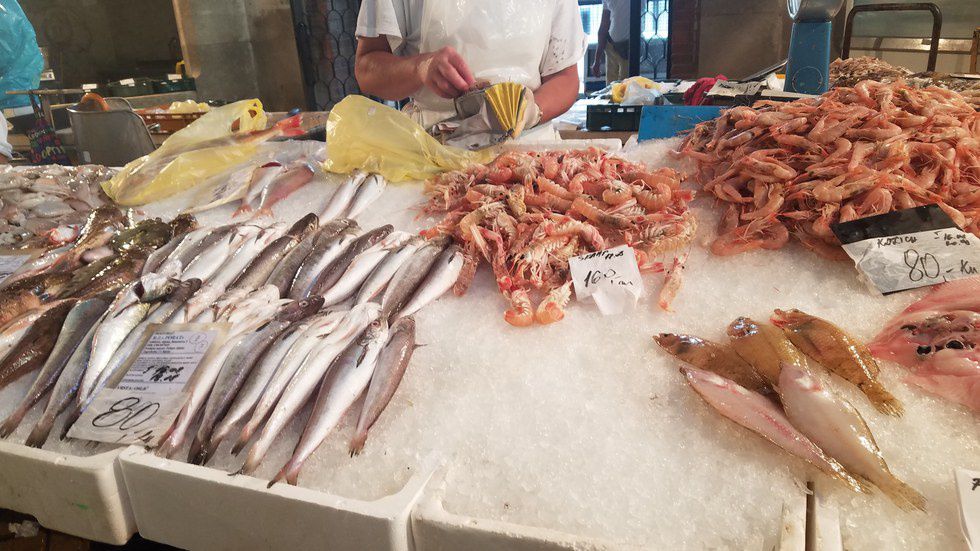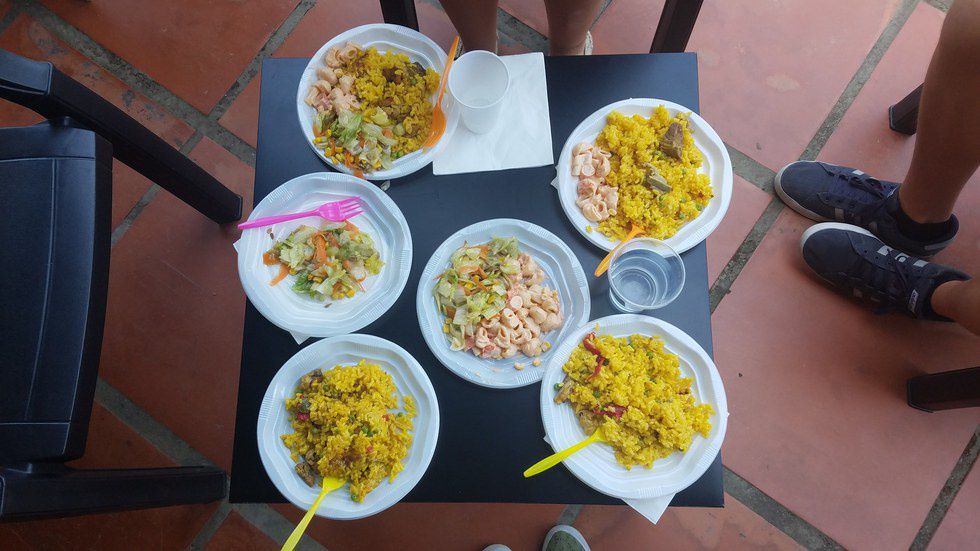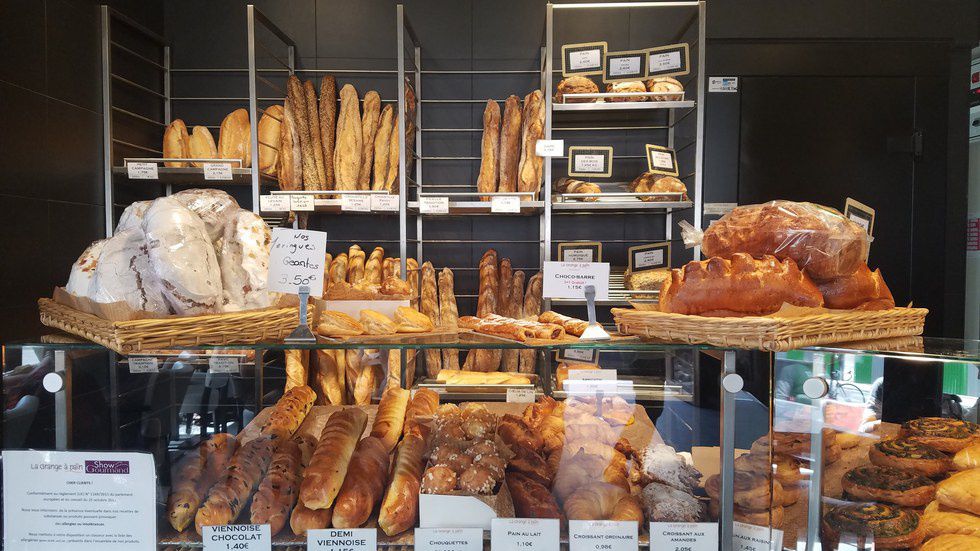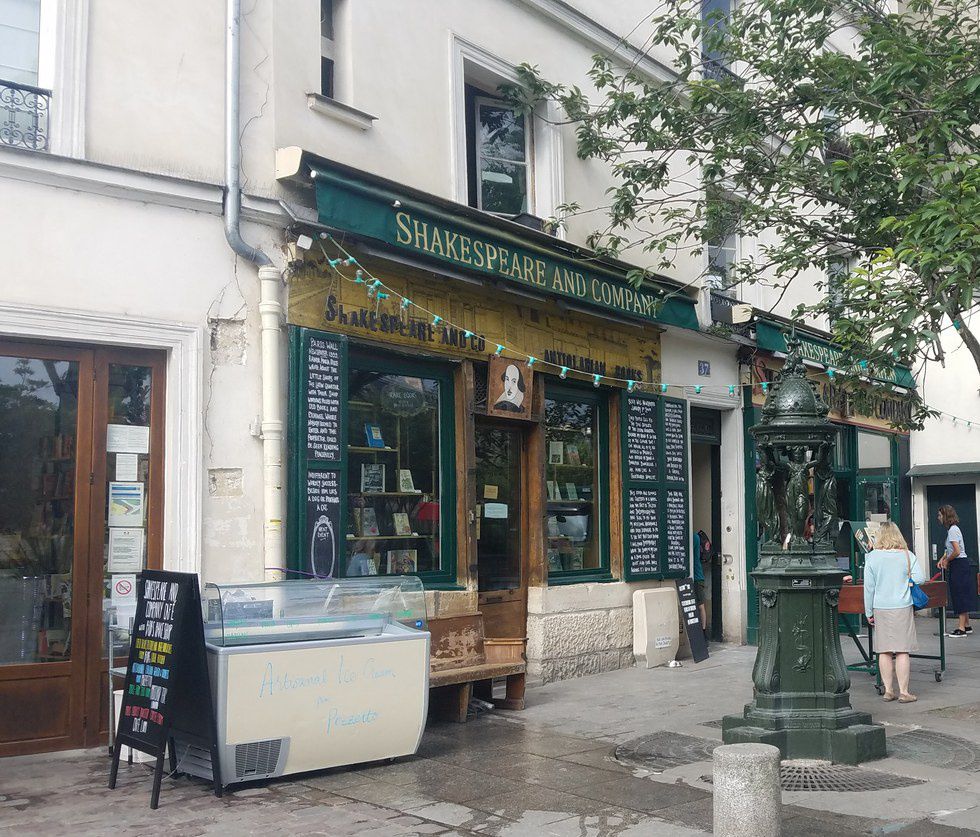Eating as a traveler is just like when you first move out and start paying for your own groceries. Suddenly you realize that ramen and instant mac are much more sustainable meals than you thought when you were pampered with a meal plan. When you’re running around Europe, sometimes quite literally, you need to eat. Your mouth waters and your will power weakens as you waltz by dozens, if not hundreds, of restaurants with ads designed to draw you in. Resist the temptation.
Let me introduce you to your new best friend — markets.
Fresh food markets are a way of life in Europe. They close up mid afternoon and if you miss out you’ll be left to track down the much less enticing cousin of food markets — grocery stores. (On the topic of grocery stores, know you'll need to bring your own reusable bags.)
Most days my food budget was 11 USD. It’s not as bad as you think; some days I wouldn’t even spend it all. You’ll realize you need to eat a lot less than you're used to. Everything from juice to condiments quickly becomes unnecessary. I would buy large bags of pasta or rice and a jar of peanut butter and carry them in my bag. Each day I would grab a couple vegetables, a cheap meat, and fruits from a market and do a little stir fry for the night with fruit and peanut butter for the following breakfast. If I felt like treating myself, and I often did, I might pick up a bottle of wine for no more than 3 euros on my walk back.
When Couchsurfing some of my hosts even made me porridge and tea or coffee in the mornings (thanks, Niki). Fair warning: when people offer you coffee they do mean instant coffee; you’ll get used to it, sadly.
While making food yourself saves lots of money, it’s not always the best. If there are any foodies in the audience, eating is an incredible way to get to experience a culture and I highly recommend it.
It doesn’t always have to be restaurants; home cooking is some of the best food I’ve ever had in my life. Locals are known to make daily trips for fresh ingredients bringing up the home cooking game to a whole new level. Home cooking offers a lot of things restaurants can't, like breakfast. If breakfast is served it’s for the British tourists, not locals. In a similar way, you'll never find 'la merienda' in a restaurant in Spain.
If you’re eating out, eat out during lunch. Prices are often reduced and there are likely chef special menus. If you’re going out at night, bars in places like Spain will often have free tapas if you stand at a table and buy a drink, so do some research.
It can be so easy to get distracted by all the different foods and bread you’re seeing which makes it all too easy to become dehydrated.
Make sure you're drinking water, but not too much.
If you drink a lot of water, plan to need a lot of bathrooms (another word you should learn in every language). Bathrooms, toilettes, loos, WCs, etc., are infrequent and cost money. That’s right, you have to pay to use public bathrooms pretty much everywhere. Sometimes you’ll pay upwards of 2 USD to use something comparable to a porta-potty. At some, you need to gather your toilet paper before going in. You might also need to grab some on the way out to wipe your inevitable tears from the scent.
If you drink so much water that you need to use a bathroom every 45 minutes at the most that could grow to be a problem. Transport that problem onto a bus, plane, or BlaBlaCar on a travel day and it gets a lot worse.
Take it as a tip – always use free bathrooms and stay moderately hydrated. Let me pause for a shout-out to Paris for the coolest public water fountains ever (the green statue in the picture above). Free bathrooms can also mean walking into a busy, touristy restaurant and asking where the bathroom is. They won’t have the time to figure out if you’re a customer or not.
All of the things that travel is known to be expensive for can be done for much less, trust me, the locals do it. Look beyond what meets the eye and please both your stomach and your wallet.



























